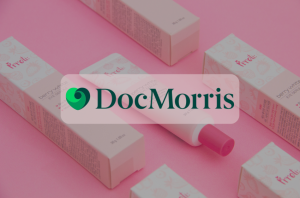

Introduction: Importance of skin type in beauty routines
When it comes to beauty routines, it's important to understand that one size does not fit all. The products and techniques that work for one person may not necessarily work for another, and this is especially true when it comes to skin type. Your skin type plays a vital role in determining the effectiveness of your beauty routine, as well as the overall health and appearance of your skin.
There are four main skin types: normal, dry, oily, and combination. Each of these types has its own unique characteristics and requires specific care to maintain its balance. While all skin types have their own set of challenges, those with dry skin tend to face more difficulties due to the lack of natural oils and moisture in their skin.
Dry skin is characterized by a feeling of tightness or roughness on the surface. It may also appear flaky or dull, making it difficult for makeup to sit smoothly on the skin. Dry skin can be caused by various factors such as genetics, climate changes, hormonal imbalances, and lifestyle habits like smoking or excessive alcohol consumption.
Understanding Dry Skin: Causes and Characteristics
Dry skin is a common skin condition that affects many people. It occurs when the skin lacks moisture and becomes rough, itchy, and tight. While dry skin can affect any part of the body, it is most commonly seen on the face, hands, arms, and legs.
Causes of Dry Skin:
1. Weather - One of the main causes of dry skin is weather conditions. Cold weather with low humidity levels can strip the skin of its natural oils and moisture, causing it to become dry and flaky. Similarly, hot weather with high temperatures can also cause dehydration in the skin leading to dryness.
2. Harsh Products - Using harsh products on your skin can also be a major cause of dryness. Skincare products that contain alcohol or fragrances can strip away natural oils from your skin leaving it feeling dry and irritated.
3. Age - As we age, our skin produces less oil which makes it prone to dryness. This is because our sebaceous glands (oil-producing glands) become less active as we grow older.
4. Genetics - Some people are more predisposed to having naturally dry skin due to their genetics. If you have a family history of eczema or other similar conditions, chances are you may have inherited a tendency towards drier skin.
Tips for Nourishing and Hydrating Dry Skin
Dry skin can be a frustrating and uncomfortable condition to deal with, especially during the colder months when the air is drier and harsher on our skin. But fear not, there are some simple tips that can help nourish and hydrate your dry skin, leaving it feeling soft, smooth, and radiant.
1. Choose the Right Cleanser:The first step in any beauty routine for dry skin is choosing a gentle cleanser that will effectively remove dirt and impurities without stripping away your skin's natural oils. Look for cleansers that are specifically designed for dry or sensitive skin, avoiding harsh ingredients like alcohol or fragrances which can further irritate dryness.
2. Exfoliate Regularly:Exfoliation is essential for removing dead skin cells and promoting cell turnover, but it's important to choose an exfoliator that is gentle enough for dry skin. Opt for chemical exfoliants like AHAs (alpha-hydroxy acids) or BHAs (beta-hydroxy acids) which work to gently dissolve dead skin cells without causing irritation.
3. Moisturize, Moisturize, Moisturize:This might seem obvious but moisturizing regularly is crucial for nourishing dry skin. Look for moisturizers that contain hydrating ingredients like hyaluronic acid or glycerin which attract moisture to the skin and help lock it in. You may also want to consider using a heavier cream or oil-based moisturizer at night to give your skin an extra boost of hydration
- Choosing the right cleanser and moisturizer
Choosing the right cleanser and moisturizer is crucial for anyone with dry skin. These two skincare products are essential in providing hydration, nourishment, and protection to your skin. However, not all cleansers and moisturizers are created equal, and using the wrong ones can do more harm than good.
When it comes to choosing a cleanser for dry skin, it's important to look for products that are gentle and hydrating. A harsh or drying cleanser can strip away natural oils from your skin, leaving it feeling tight and dehydrated. Look for creamy or oil-based cleansers that will help retain moisture in your skin while effectively removing dirt and impurities.
Another important factor to consider is the ingredients in your cleanser. Avoid harsh chemicals such as sulfates, alcohol, and fragrances as they can further irritate dry skin. Instead, opt for natural ingredients like glycerin, hyaluronic acid, and ceramides that help attract moisture to the skin.
It's also worth mentioning that over-cleansing should be avoided at all costs when you have dry skin. Stick to cleansing once a day or every other day if possible. This will prevent excessive stripping of natural oils from your skin.
When it comes to moisturizers for dry skin, thicker creams tend to work best as they provide a protective barrier on the surface of the skin. Look for moisturizers that contain ingredients like shea butter, jojoba oil, or vitamin E which have intense hydrating

- Incorporating hydrating ingredients into your routine (e.g. hyaluronic acid, oils)
Incorporating hydrating ingredients into your beauty routine is essential for nourishing and maintaining healthy, radiant skin. Dry skin can be caused by a variety of factors such as genetics, weather conditions, and harsh skincare products. However, incorporating hydrating ingredients into your routine can help combat dryness and promote overall skin health.
One of the key ingredients to look for in hydrating products is hyaluronic acid. This powerful humectant has the ability to hold up to 1000 times its weight in water, making it an excellent ingredient for moisturizing dry skin. Hyaluronic acid works by drawing moisture from the environment and locking it into your skin, providing long-lasting hydration.
When choosing a product with hyaluronic acid, look for serums or moisturizers that have a high concentration of this ingredient. This will ensure that you are getting the most benefits out of it. Additionally, using hyaluronic acid in combination with other hydrating ingredients such as glycerin or ceramides can further boost its effectiveness in keeping your skin hydrated.
Aside from hyaluronic acid, incorporating oils into your routine is also beneficial for dry skin. Oils act as emollients which means they form a protective layer on the surface of the skin to trap moisture inside and prevent water loss. Some great options for oils include jojoba oil, rosehip oil, and argan oil.
- Using face masks and serums for extra hydration
Our skin is exposed to various environmental factors that can leave it feeling dry and dull. This is especially true for those with dry skin, as their skin's natural ability to retain moisture is compromised. To combat this, incorporating face masks and serums into your beauty routine can provide an extra boost of hydration for a radiant complexion.
Face masks are a great way to provide intensive hydration to the skin. They come in various forms such as sheet masks, clay masks, gel masks, and overnight masks. Sheet masks are pre-soaked sheets infused with nourishing ingredients like hyaluronic acid and ceramides that adhere to the face, allowing for maximum absorption of nutrients into the skin. Clay masks work by drawing out impurities while also delivering essential hydration to the skin. Gel masks have a cooling effect on the skin and are ideal for soothing dryness or irritation. Overnight masks are applied before bed and left on overnight to deeply hydrate and revitalize the skin.
When choosing a face mask for dry skin, look for ingredients such as hyaluronic acid, glycerin, and ceramides which help replenish the skin's moisture barrier. These ingredients work by attracting water molecules from the air into the top layers of your skin, keeping it hydrated throughout the day.
Serums are another key product in achieving hydrated and nourished skin. They contain high concentrations of active ingredients that penetrate deep into the layers of your skin to deliver targeted benefits. When it comes to dry skin, look


